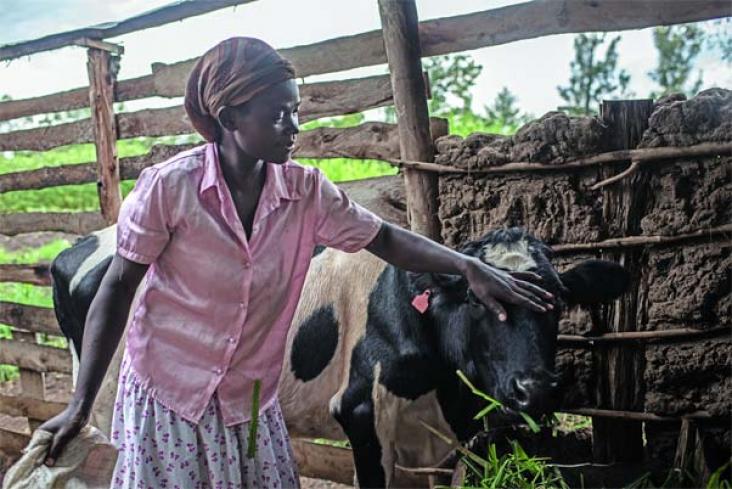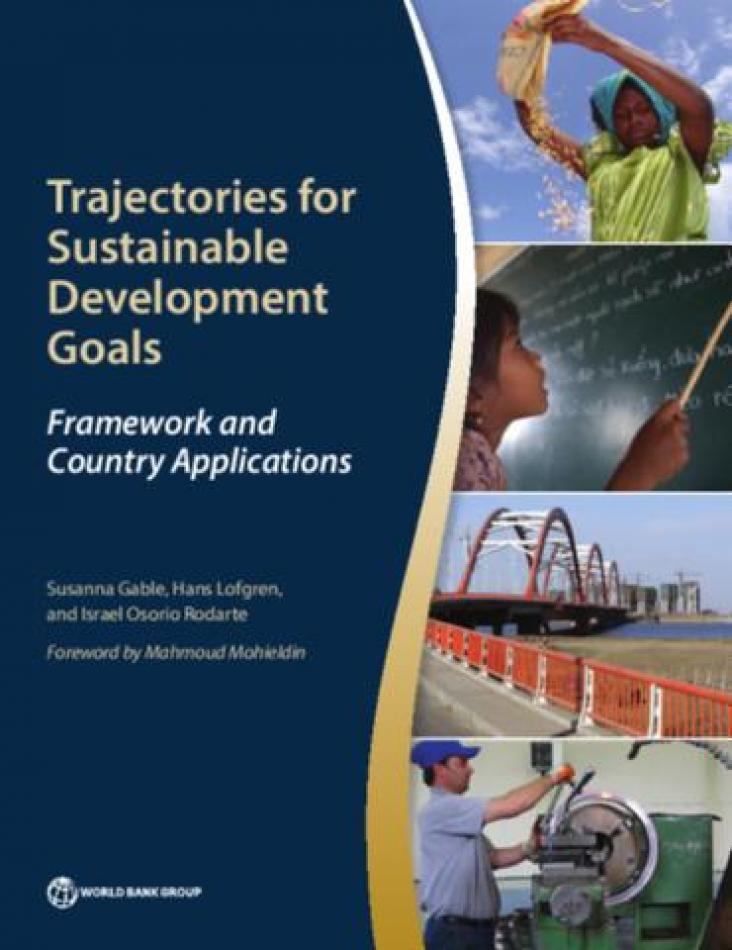Linking to Goals 2, 6, 15, 17, this toolbox connects your business to the latest tools, guidance, case studies, datasets, and more most relevant to you based on your circumstances and interests.

This article highlights the winning proposals of the third edition of the Elsevier Foundation Green & Sustainable Chemistry Challenge. The winning proposals were chosen for their innovative green chemistry aspects and their large positive impact on the environment, contributing to SDGs 2, 12, 13 and 15.

This article explores how innovations can be used to advance goals 2 (zero hunger) and 12 (sustainable consumption and production). Nematicides - products for controlling soil-borne pests in root crops - are under threat of further regulation or withdrawal due to their toxicity. The Nematicide Stewardship Programme is demonstrating they can be used responsibly and safely to ensure their approval is maintained. But one farmer has taken it a step further by using technology to ensure his nematicide is applied accurately.

How to feed a population of 9bn in 2050? This was the question posed which provided the impetus for Elsevier to launch the bi-annual International Conference on Global Food Security Conference in 2013. Now in its 3rd year this highly regarded, research-led conference is focusing on five core conference themes to reflect an integrated approach to identifying solutions to the complex global challenge of food security: 1. Food creation 2. Food safety and bio security 3. Food loss and waste 4. Food in a changing society 5. Food utilization. Achieving global food security whilst reconciling demands on the environment is the greatest challenge faced by mankind. This directly supports SDG 2: to end hunger, achieve food security and improved nutrition and promote sustainable agriculture.

Nearly 30 years on from its launch by a group of UK West Country dairy farmers, the charity Send a Cow is making a big difference to people’s lives in seven countries in Africa. With its new campaign under way, Farmers Weekly finds out what the charity hopes to achieve and how farmers abroad are benefiting with the help of their UK counterparts. Endeavours such as this support SDG 1 No Poverty, and SDG 2 Zero Hunger and are a great example of SDG 17 Partnerships for the goals in action.

This book presents the country development diagnostics post-2015 framework, developed by the World Bank Group to assess the country-level implications of the post-2015 global agenda, as well as brief, ‘at-a-glance’ applications of the framework to ten countries: Ethiopia, Jamaica, the Kyrgyz Republic, Liberia, Nigeria, Pakistan, Peru, the Philippines, Senegal, and Uganda.

Proagrica has produced a White Paper report which sets out how its technology supports evidence-based production and the impact that will have on the world’s ability to feed the world sustainably. Driven by the power of big data to drive insights at farm level, solutions such as Proagrica will significantly advance SDG 2.4 to ensure sustainable food production systems and implement resilient agricultural practices that increase productivity and production.
The Blueprint for Business Leadership on the SDGs aims to inspire all business — regardless of size, sector or geography — to take leading action in support of the achievement of the Sustainable Development Goals (SDGs). It illustrates how the five leadership qualities of Ambition, Collaboration, Accountability, Consistency, and Intentional can be applied to a business' strategy, business model, products, supply chain, partnerships, and operations to raise the bar and create impact at scale. The Blueprint is a tool for any business that is ready to advance its principled approach to SDG action to become a leader. This chapter relates specifically to SDG 2.

Lucy Ajok, a 34 year old Ugandan farmer, gives Farmers Weekly an insight into her rural life. Lucy is a single mother of five children and lives on a three-acre farm practising mixed farming. Farming families dependent on family labour, like Lucy's, are typically the poorest in Uganda, and often have the additional challenge of HIV. This interview shares some of the challenges faced in achieving SDG 1 and SDG 2.
The role of agriculture in flood risk mitigation has been largely overlooked in the UK government’s national flood resilience review. Farm leaders are concerned that the review contains little mention of agriculture, rural communities or food security. This highlights the need to address flood risk mitigation holistically to support SDG 13.1 to strengthen resilience and adaptive capacity to climate-related hazards and natural disasters, and SDG 2.4 to implement resilient agricultural practices that strengthen capacity for adaptation to climate change, including flooding.
